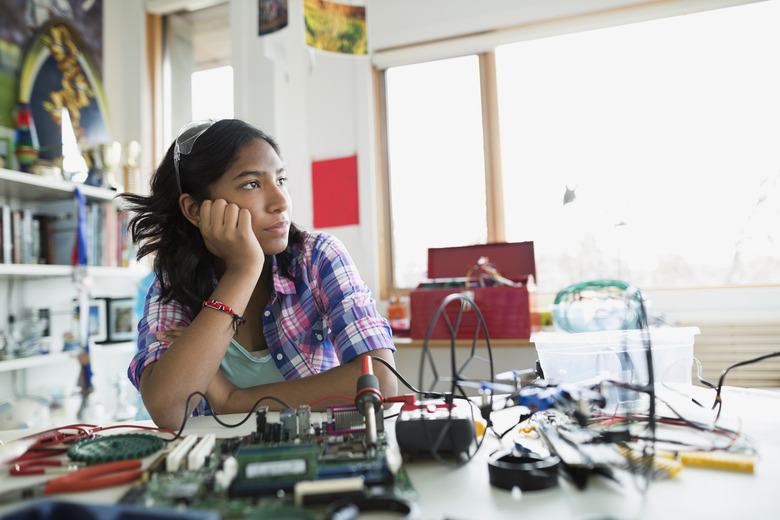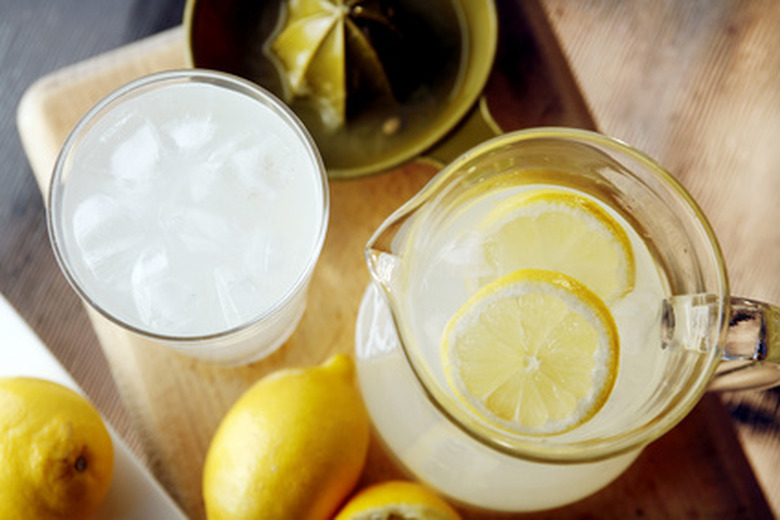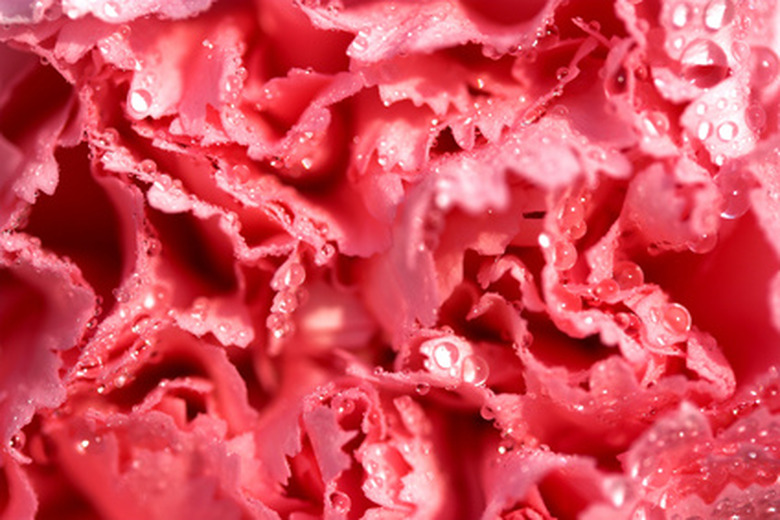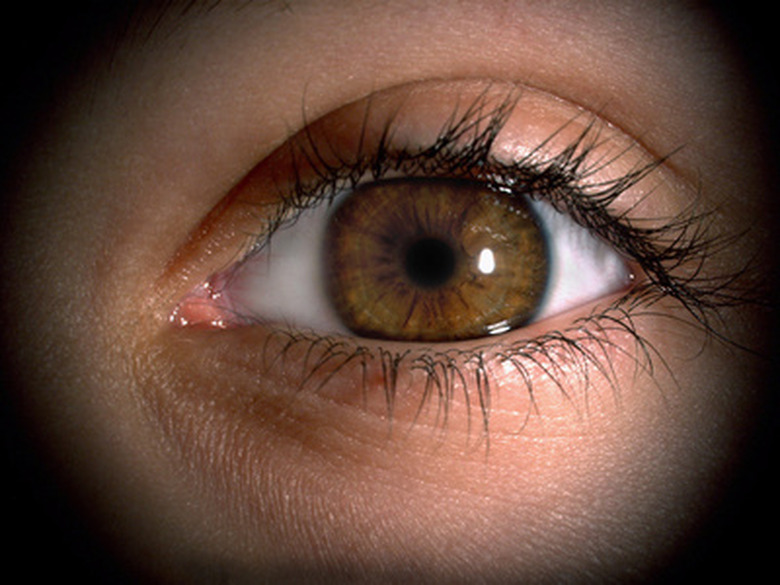10 Simple Science Projects
Science projects are developed by doing an experiment based on learning one thing at a time, following the steps of scientific method. According to Science Fair Central, the steps are ask a testable question, research your topic, make a hypothesis, design and conduct the investigation, collect data, make sense of the data and draw a conclusion and present your findings.
Physical Science
Physical Science
"Is one type of wood heavier than another?" is a testable question that makes an easy science project. Place two clear cups of water on the table. Mark with a permanent marker the water level on the cup. Place a block of wood in one of the cups. Place the same size block of another type of wood in the other cup. The water level rises due to the wood displacing the water. Make a new mark on the cup where the water level is now. The wood that is heavier is also the wood that displaced the most water.
"Are artificial sweeteners sweeter than sugar?" This testable question is answered by making lemonade with equal amounts of a variety of artificial sweeteners and with sugar. Ask your friends to taste each batch of lemonade. Have them rank the lemonades by sweetness. Make a bar graph of the results.
Life Science
Life Science
"Which type of food molds the fastest?" is a science fair project easily set up. Place a banana, a slice of cheese, a piece of bread and a glass of milk in a cabinet. Keep a daily journal with drawings of the changes in the foods' appearance to determine which one grows mold the fastest.
"Where does the water go when a plant is watered?" Fill two vases with water. Put four drops of green food coloring in the first vase and four drops of blue food coloring in the other vase. Place white carnations in the colored water. The carnations will change color. It will be obvious by looking at your flowers the way the plant absorbs water into the plant and the petals. Make a colored drawing of the changes daily.
"How does exercise affect your heart rate?" Take the beginning pulse rate of three friends by finding their heart beat in their neck or wrist. Time their hear rate for one minute. Record the resting heart rate. Have everyone vigorously jump rope for one minute. Take the heart rate again and record the results. Repeat the exercise one more time. Make a chart of the increase of heart beats per minute.
Psychology
Psychology
"Does gender affect the tendency to follow procedures?" Park in the parking lot of a grocery store or large discount store for two hours on a busy weekend. Keep a tally of the number of men and the number of women who return the cart to the cart stall. Make a chart to show your findings.
"Does handedness affect the ability to detect an optical illusion?" Survey at least 10 people for handedness, left-handed or right-handed. Show them an optical illusion. Ask them if they can see the hidden illusion. Keep a tally of who can see the illusion and their handedness.
And There's More
And There's More
"Do plants grow better with classical music?" Plant four bean seeds. Place two in a sunny location with the earphones of a mp3 player playing classical music touching the surface of the soil. Place two plants in the same sunny location without the classical music. Measure and record the growth daily after the seeds have sprouted to determine if classical music helps plants grow.
"Do our eyes really have a blind spot?" Mark a dot and a cross on a 3 x 5 index card. Hold the card, on your right, at eye level about an arm's length away. Close your right eye. Look at the cross with your left eye. You can also see the dot. Bring the card closer to your face. The dot will disappear. The retina has a spot where there are no light receptors to send the visual stimuli, the dot in this case, to your brain. When the card reaches the point where you have no receptors, the dot is gone.
References
- Discovery Education: Science Fair Central – Are You a Student Who Enjoys Conducting Hands On Experiments? An Investigation Project May Be for You
- NOVA Online / Voyage of Doom/ Buoyancy Basics; November, 2000
- Science Buddies: Sugar vs. sugar Substitutes: Are They Just as Sweet?
- Discovery Education: Science Fair Central: Keep It Cool
- Free Science Fair Projects: Mold Experiment
Cite This Article
MLA
Rickey, Susan. "10 Simple Science Projects" sciencing.com, https://www.sciencing.com/10-simple-science-projects-7815833/. 22 November 2019.
APA
Rickey, Susan. (2019, November 22). 10 Simple Science Projects. sciencing.com. Retrieved from https://www.sciencing.com/10-simple-science-projects-7815833/
Chicago
Rickey, Susan. 10 Simple Science Projects last modified August 30, 2022. https://www.sciencing.com/10-simple-science-projects-7815833/




